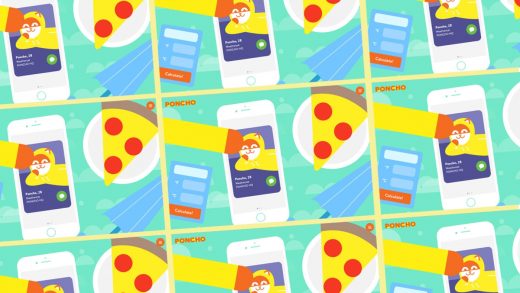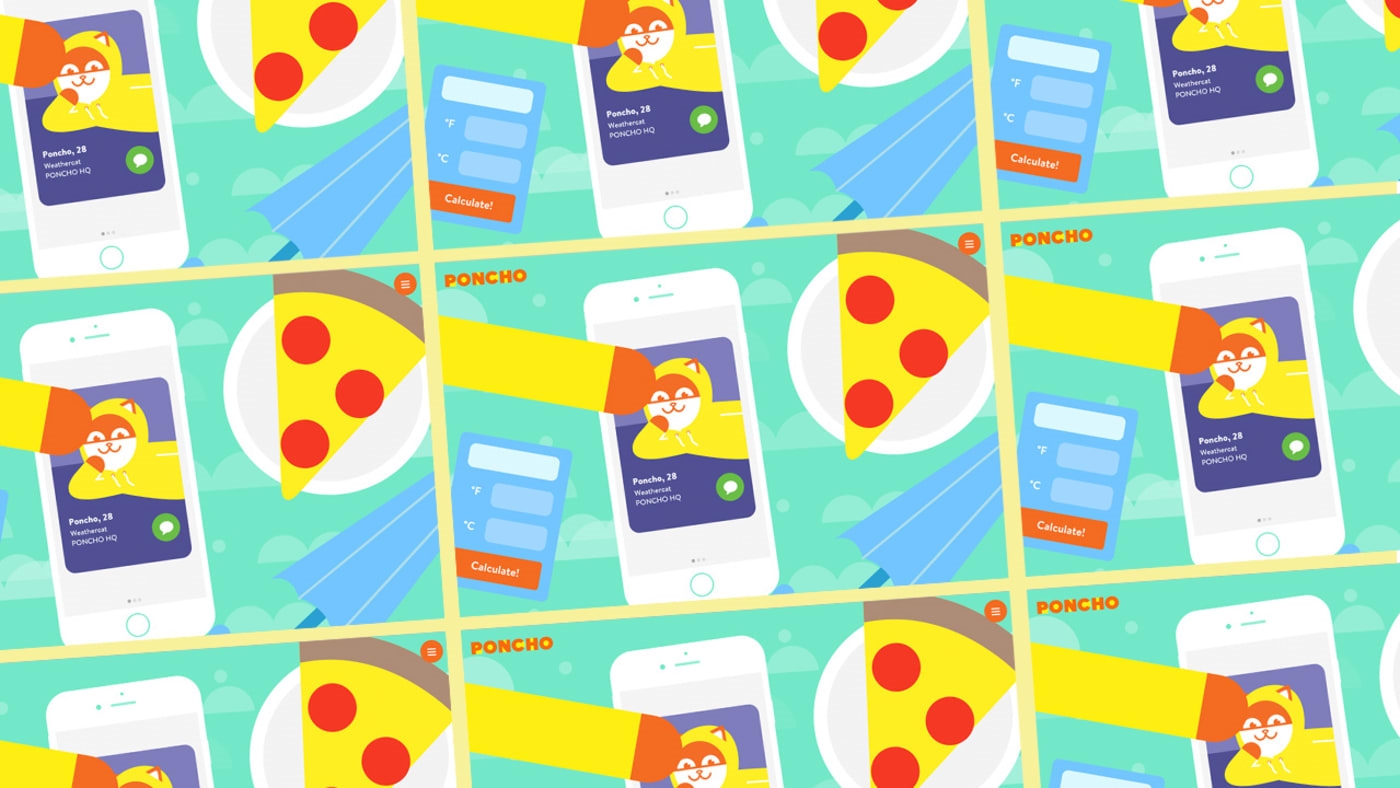Exclusive: Weather app Poncho has been acquired by a boutique beverage company
Today, beloved users of Poncho–the startup that provided its users with SMS and email-based weather updates–will wake up to learn that the company will soon be shutting down its services. Fast Company has learned that the small company has been acquired by the beverage brand Dirty Lemon.
Dirty Lemon, of course, is not a weather service, and thus has no use for a daily weather update product. What Dirty Lemon does do, however, is provide text message-based brand-to-user interactions–an infrastructure Poncho has been building out over the last few years. The entire Poncho team is being scooped by the drink company, Dirty Lemon’s CEO Zak Normandin tells me, and will be folded into its overall business.
Poncho’s CEO, Sam Mandel, is stepping down from his post and will serve as an adviser to Dirty Lemon. Other terms of the deal have not been disclosed.
Poncho first launched in 2013, offering a stripped-down weather forecasting service for young, mobile-friendly users. It was part of Betaworks and founded by one of the incubator’s hackers-in-residence at the time, Kuan Huang. As Business Insider wrote back when it initially launched, the early idea went to market rapidly; a weather bot was created and quickly shipped to users. The idea was to test Poncho out fast and figure out the market it was addressing.
Poncho quickly built an avid following of users–likely due to its strong content and a social media team that built up the voice of the company’s silly cat mascot. Yes, Poncho users were notified of the weather by a text purportedly sent by a cat. Poncho also offered rewards for users who referred friends to the app; a few years back on Twitter, earning a Poncho umbrella was considered an impressive feat. Meanwhile, Poncho built up its SMS chat abilities, as well as other chat-centric functions on platforms like Facebook Messenger. It also expanded to cities beyond New York.
Though initial customer acquisition seemed promising–and Poncho was able to secure over $2 million in seed funding–the company wasn’t able to keep the growth up.
“We weren’t able to achieve critical mass,” Mandel tells me. Poncho, he says, was essentially a media product–and that required figuring out how to scale up the service and monetize it. It turns out the last two steps are quite difficult in today’s digital landscape.
“It’s been a challenge,” Mandel goes on, “to build a product that was independently compelling.” Over time, Poncho shifted from not primarily being a weather service to figuring out how to create a conversational product.
“The point of the product was to drive things forward with conversation,” Mandel says.
Why Dirty Lemon?
Poncho now belongs to Dirty Lemon, a direct-to-consumer beverage brand that launched in 2015. Dirty Lemon uses SMS to engage with customers. As Zak Normandin tells me, he knew his company needed a “frictionless way for users to order the products.” The idea was to build a luxury drink brand that could exclusively be ordered directly from people’s mobile phones.
Currently, Normandin says, Dirty Lemon offers seven different types of lemon-based, high-end drinks–including one in partnership with Vogue magazine–and has over 100,000 customers worldwide. Other than a partnership at Soho House, Dirty Lemon can only be purchased when users text message the company. This year, Normandin plans to launch a new beverage every month. He adds that 60% of the company’s user base reorders the drinks every month.
Dirty Lemon’s aims to create a better infrastructure for its customers to connect with the company over text message. Normandin sees it as “a case study in selling beverages direct-to-consumer.” He adds that he is looking at other acquisition possibilities in the near future, too.
Normandin says he got to know Poncho over the last year through their mutual investors. “They’ve really set the standard” of what a conversational bot can do, Normandin says of Poncho.
And so Poncho is leaving the weather world and entering the boutique beverage industry. Users are receiving an email letting them know that Poncho, the beloved weather cat, is starting a new job at Dirty Lemon.
For Mandel, it is bittersweet to watch a company he tried to build fail to fulfill its potential because, he believes, of the ever-growing tech juggernauts. The leading companies–Google, Facebook, Amazon, etc.–have become so big and influential that they no longer rely on smaller developers to build out their platform ecosystems, he says.
“We were always in favor of monetization,” says Mandel,” we just never got to that point.” Now, he says, Poncho’s legacy can live on “from a business that’s already creating existing revenue.”
Fast Company , Read Full Story
(28)



